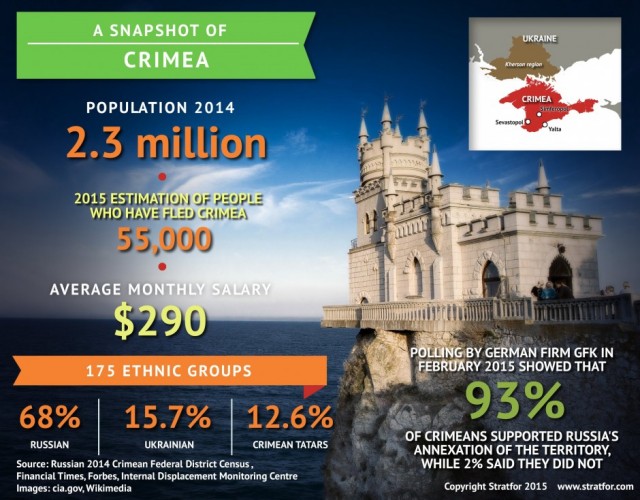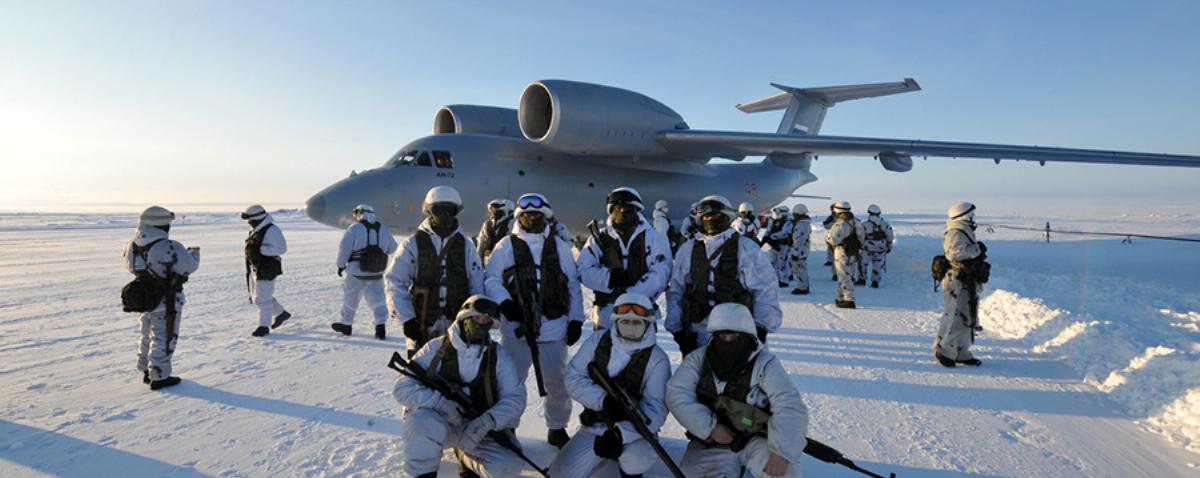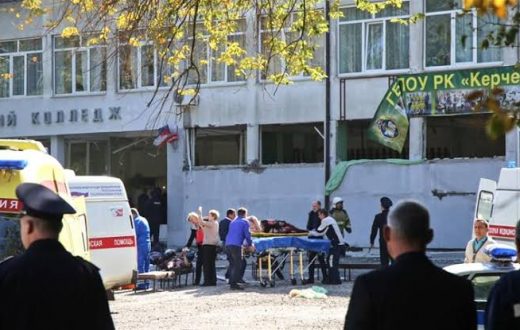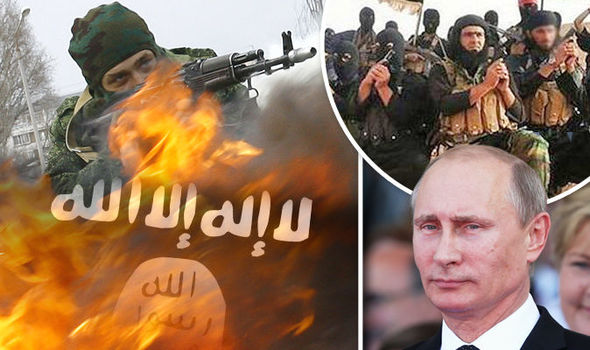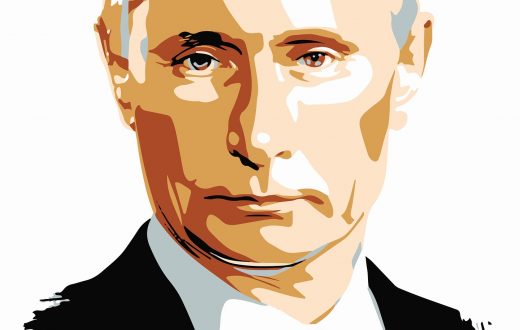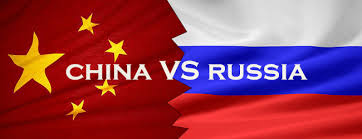Summary
Crimea is in the midst of an energy crisis after electricity links from mainland Ukraine to the peninsula were cut over the weekend of Nov. 20-22. It is unclear who attacked the electricity service, although it appears that Ukrainian security forces would not have prevented Crimean Tatar activists who had been protesting (and continue to protest) near the transmission towers from sabotaging the infrastructure. The crisis could be a message from Ukraine that it has leverage against Russia, though sending a message this way risks escalation.
Analysis
Electrical power running from Ukraine’s Kherson region to Crimea initially was disrupted on Nov. 20, when two transmission towers were damaged and subsequently went out of service. In the early morning of Nov. 22, an explosion took the two remaining transmission towers offline, effectively cutting off all electricity supplies from Ukraine to Crimea. Afterward, authorities in Crimea imposed a state of emergency and turned to backup gas-powered generators to provide electricity temporarily to the peninsula’s major cities, such as Sevastopol, Simferopol and Yalta. However, Russian Deputy Prime Minister Dmitry Kozak said Nov. 23 that at least 1.5 million Crimean residents were still without power and that the generators were able to fill only around 30 percent of electricity needs for those with access to them.
No one has officially claimed the attacks on the electricity lines, although the disruption coincided with a demonstration by Crimean Tatar activists and Ukrainian nationalists who blockaded the transmission towers in Kherson over the weekend. The demonstrators were protesting Russia’s treatment of Crimean Tatars on the peninsula and called for a blockade of all Ukrainian trade with Crimea until Moscow releases political prisoners and allows international organizations to monitor human rights on the peninsula. Ukrainian security forces initially had minor clashes with the activists following the first disruption, but this did not prevent the explosion that cut off electricity supplies altogether.
Russia has called for the immediate repair and restoration of electricity supplies to Crimea, which depends on Ukraine for 70 percent of its electricity supplies, but on Nov. 23 the Ukrainian authorities claimed that the situation was not stable enough to restore energy flows. Russian Energy Minister Alexander Novak said Nov. 24 that Moscow would consider retaliation for the disruption in electricity supplies to Crimea, including halting natural gas and coal exports to Ukraine. Also on Nov. 24, Ukrainian energy company Ukrenergo started repairs on one of the four transmission lines. But the company said the line would not be fixed until Nov. 26 at the earliest and did not specify if or when work on the remaining cables would start. Meanwhile, the Ukrainian government temporarily banned the movement of cargo between Ukraine and Crimea, increasing economic pressure on the peninsula.
These developments come amid increasingly confrontational talks between Ukraine and Russia on bilateral trade. Moscow has threatened to restrict all Ukrainian agricultural exports to Russia on Jan. 1, when the implementation of a free trade agreement between Ukraine and the European Union comes into effect. The restrictions could cost Ukraine roughly $600 million, and the European Union has said it will not provide financial assistance to Kiev if it loses the Russian market. Moreover, the conflict in eastern Ukraine has grown more intense in recent weeks after two months of relative calm, possibly because of a breakdown in political negotiations between Kiev and the West on one side and Moscow and the separatists on the other.
Ukraine could thus be using the electricity cutoff to Crimea to send a message to Russia that Kiev will enact its own restrictions. Crimea’s dependence on Ukrainian electricity makes it particularly vulnerable. Russia has worked to expand energy and electricity links to Crimea, but it likely will take years for the peninsula to gain independence from Ukraine, although Novak has said plans to construct cables under the Kerch Straits into the peninsula would be fast-tracked. Kiev could also be interested in renegotiating the electricity supply contract with Crimea for a higher price and steeper transit fees and could be trying to gain as many financial concessions as it can while the peninsula remains without substantial alternatives to Ukrainian electricity.
At this point, it is difficult to tell where the standoff will go. There have been other temporary cutoffs of goods and electricity flows from Ukraine into Crimea since Russia annexed the peninsula last year, but not to the extent of a full electricity cutoff. Therefore, it will be important to see to what extent and how quickly Ukraine restores electricity supplies to Crimea. Ukraine’s actions will shape Russia’s reaction to the cutoff. It will also be important to watch the reaction from the West, which has so far remained quiet on the dispute, and from Turkey, which has cultural links to Crimean Tatars and whose ties with Russia could deteriorate following the shooting down of a Russian fighter jet near the Syrian border. Kiev and Moscow could reach an agreement in the next few days, but if Ukraine stalls in restoring electricity supplies, this could turn into a more serious standoff in which retaliation by Moscow or even a Russian intervention into the Kherson region cannot be ruled out.

